From the Latin resultare (meaning to spring back), a resulting trust is created automatically when certain circumstances occur. A resulting trust differs from a constructive trust in that it gives effect to the presumed intention of the parties, rather than their express intentions. Sometimes it is very important to establish the existence of a resulting trust, particularly in relation to.. A resulting, implied or constructive trust - and it is unnecessary for present purposes to distinguish between these three classes of trust - is created whenever the trustee has so conducted himself that it would be inequitable to deny the cestui que trust a beneficial interest in the land acquired. And he will be held so to have conducted.
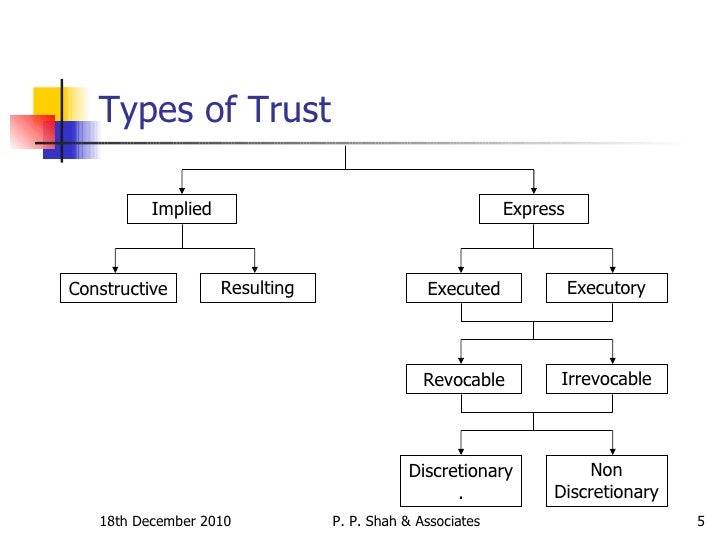
Taxability of trusts 18 1210

Land Law Constructive Trusts vs Resulting Trusts YouTube
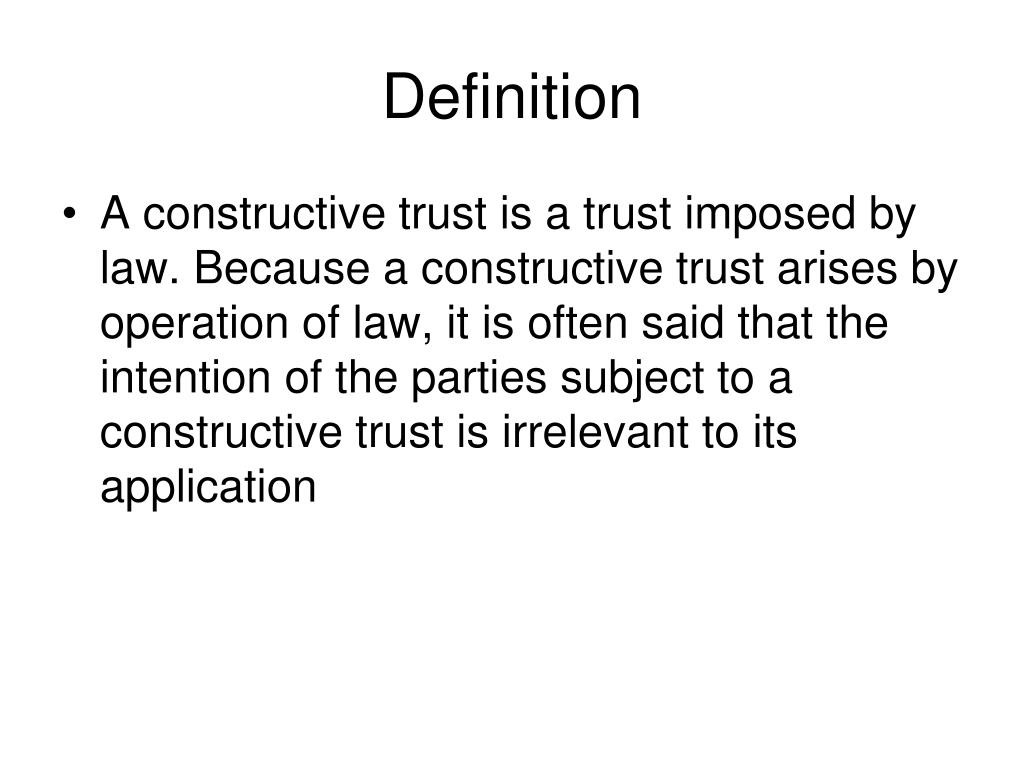
PPT Constructive Trusts PowerPoint Presentation, free download ID6627932
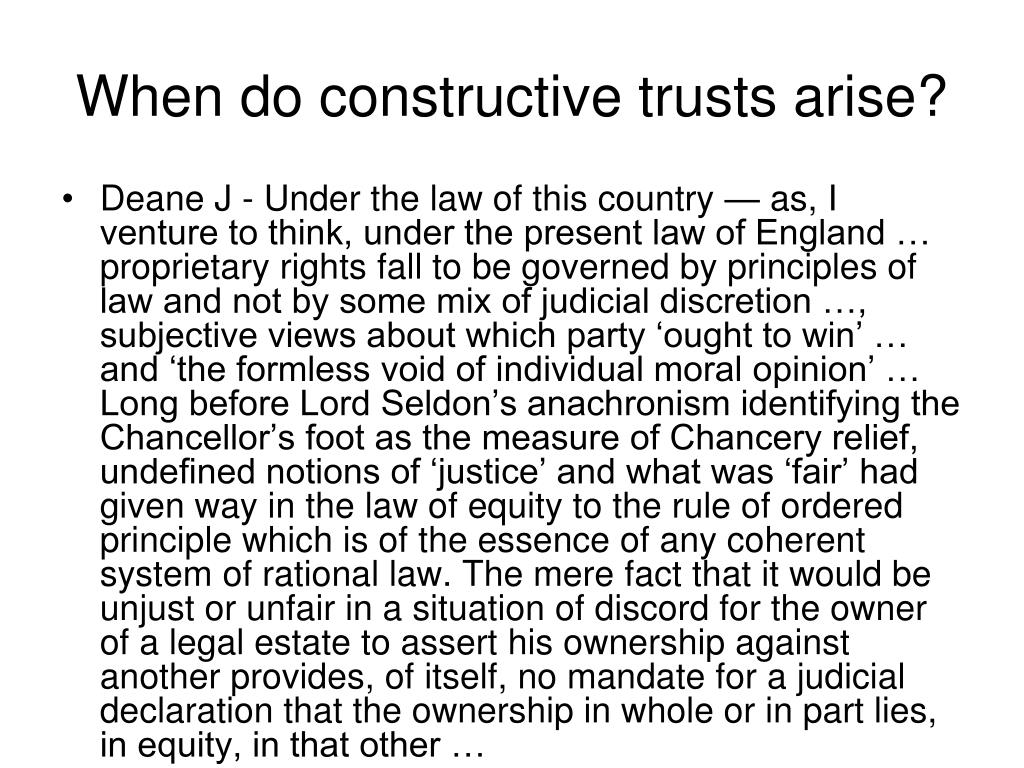
PPT Constructive Trusts PowerPoint Presentation, free download ID478526

PPT THE STRAW MAN REVEALED PowerPoint Presentation ID821784

Constructive Trust
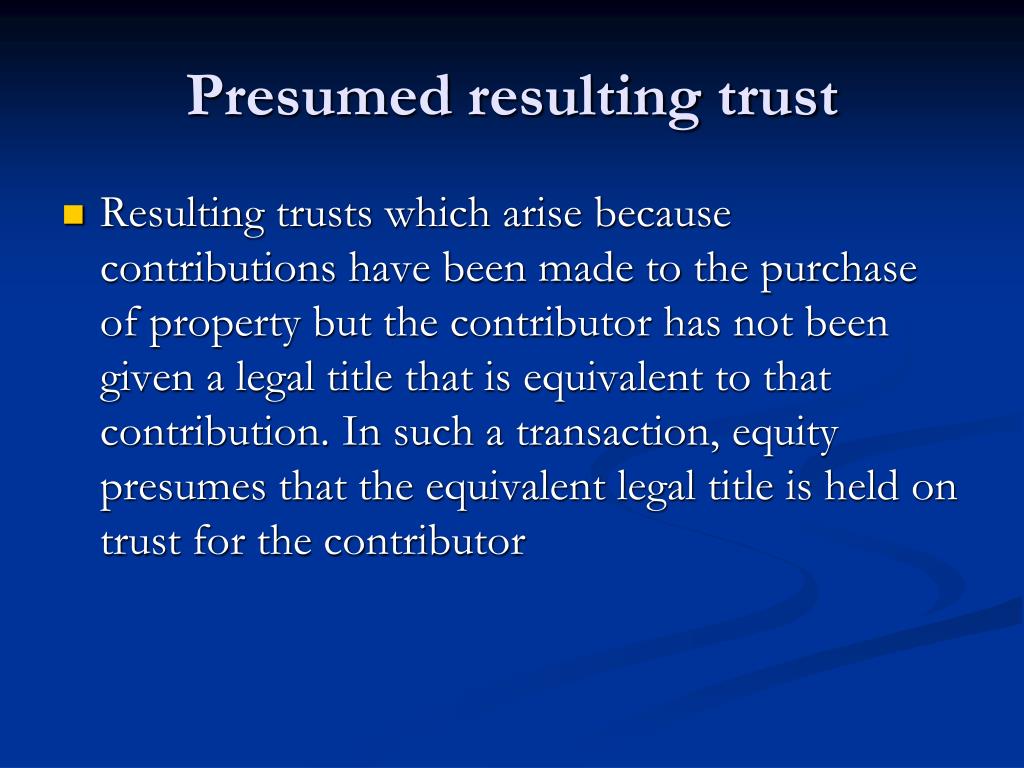
PPT Resulting Trusts PowerPoint Presentation, free download ID307218

Simple and Complex Trusts

Topic 5 Resulting and Constructive Trusts Resulting and Constructive Trusts Introduction We

Topic 5 Resulting and Constructive Trusts Topic 5 Resulting and Constructive Trusts Table of

Resulting and Constructive Trust Notes RESULTING AND CONSTRUCTIVE TRUSTS Lecture Outline
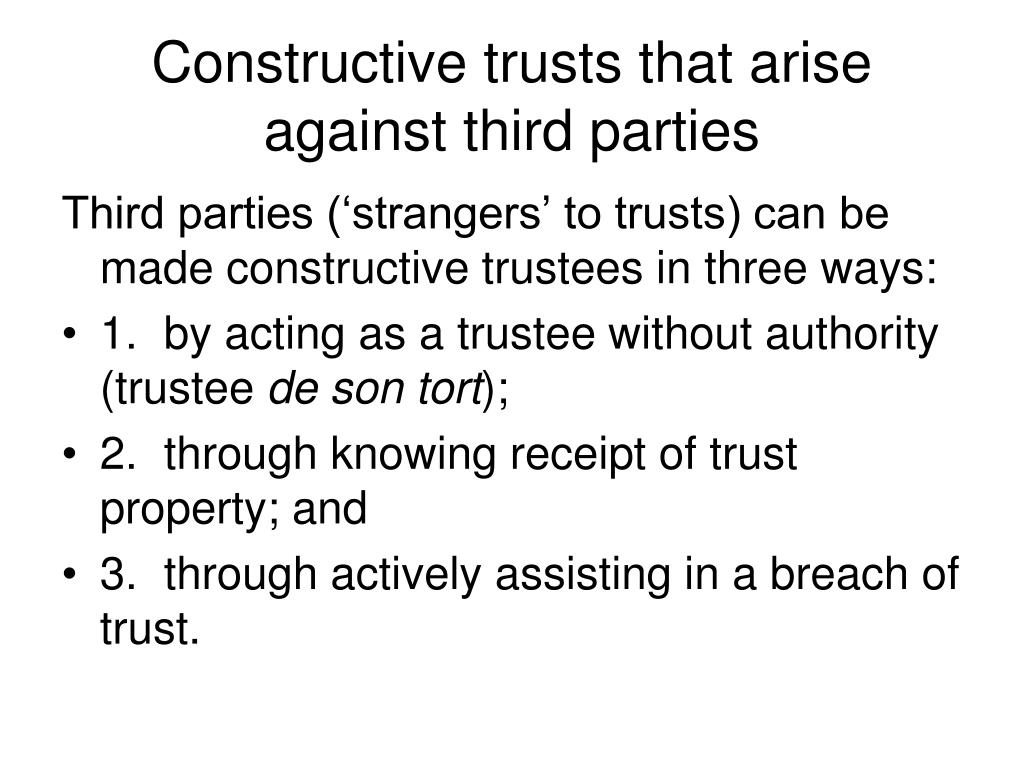
PPT Constructive Trusts PowerPoint Presentation, free download ID412949

PPT Constructive Trusts PowerPoint Presentation, free download ID412949

Constructive trust Meaning YouTube
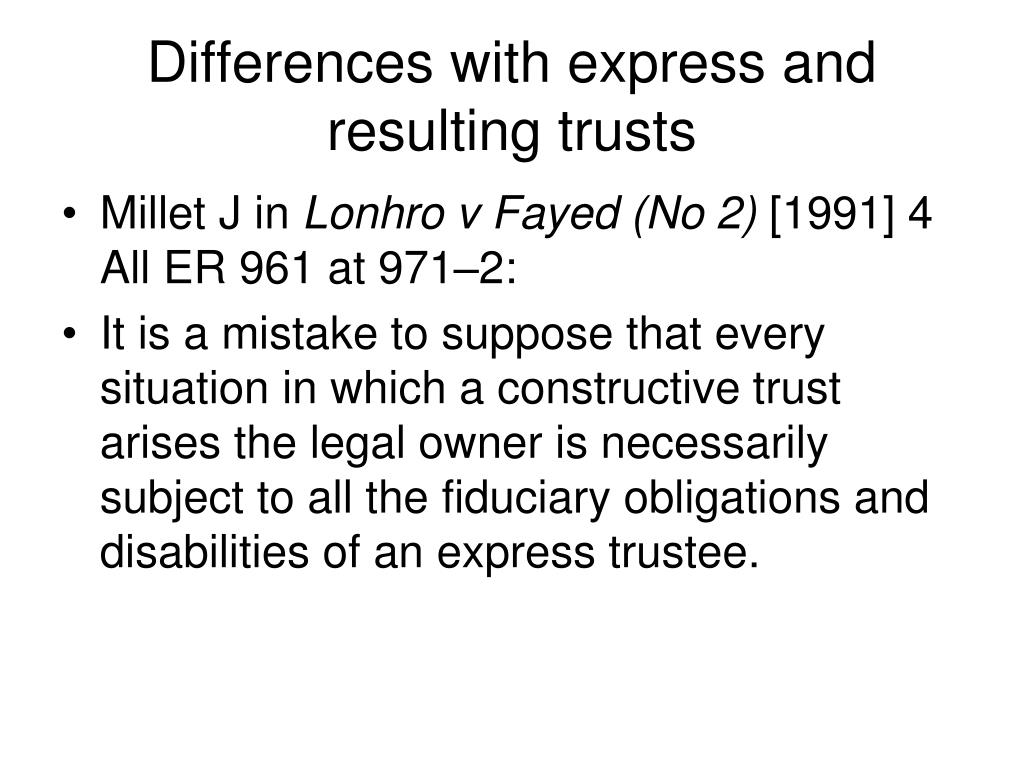
PPT Constructive Trusts PowerPoint Presentation, free download ID1199230

Resulting and Constructive Trusts and Recent Cases on the Solicitor's Lien YouTube

Topic 6 Resulting and Constructive Trust PDF Trust Law Loans

Constructive Trusts CPDFormula

(PDF) Resulting and Constructive Trusts Challenging Tax Boundaries

Lecture notes, lecture 'resulting and constructive trusts' Resulting Constructive Trusts What
People often ask if there is a difference between a Resulting Trust vs. Constructive Trust. Both Trusts are examples of implied Trusts, which are created through an act of law after a case has been presented. A Constructive Trust is used as a civil remedy, a tool that enables the plaintiff to recover their property or damages from the defendant.. The most common example of a constructive trust is a breach of fiduciary duty. A fiduciary duty is the obligation of one party to act in the best interests of the other party. For instance, an attorney has a fiduciary duty to act in the best interests of his client. The breach of fiduciary duty comes when the attorney acts in a way that.